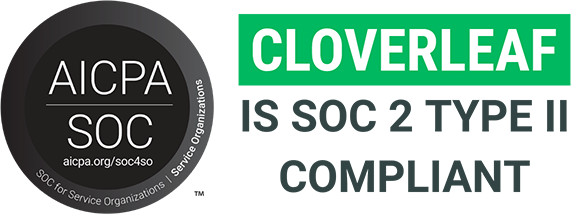The success of any company or business rarely rests on just one team member. Through the collective efforts of the entire team, success is built using communication, emotional intelligence, motivation, and teamwork.
What defines good teamwork?
Good teamwork is the collaboration of diverse talents and perspectives, where team members respect each other’s unique work styles and boundaries. It’s about effective communication and contributing skillsets towards a shared goal. Effective leadership is crucial in guiding the team and providing necessary support in this environment. Good teamwork avoids micromanagement, allowing each individual’s strengths to contribute to the team’s success. This balance between individuality and collective effort ensures that everyone is motivated and productive, leading to innovative solutions and a shared sense of accomplishment.
WHY TEAMWORK IS ESSENTIAL FOR A GOOD WORKPLACE CULTURE
More and more, younger generations are inclined to take a “lone wolf” attitude in the workplace. For tasks that team members must complete alone, this mindset is perfectly practical. However, most modern workplaces require collaboration and soft skills such as communication, teamwork, and critical thinking in order to achieve a common goal. These systems are self-sustaining. Motivation and success are natural byproducts when all team members collaborate, work responsibly, and contribute equally.
Many Hands Make Light Work
Teamwork also increases overall productivity within a workplace. Successful collaboration among multiple team members with unique skill sets accomplishes basic tasks more rapidly and efficiently, meaning the team can move on to the next goal or project.
Planning and adaptability are important during projects involving multiple team members. As teams grow larger, collaboration becomes more of an impressive feat of logistics.

HUMAN SKILL PROGRAMS ARE HITTING LIMITATIONS...
- Close the widening gap between learning and on-the-job application
- Overcome the tension of pausing productivity for development opportunities
- Integrate learning so it is actually in the flow of work
- The evolution of human skill development
- What Automated Coaching™ is and how it works.
9 TIPS FOR IMPROVING TEAMWORK
Successful team collaboration isn’t always easy to establish. If your workplace suffers from productivity issues or other problems, there may be breakdowns in teamwork to blame. Taking steps to improve teamwork can improve productivity, increase job satisfaction, and more.
Below, we cover some of the best ways your company and leadership can help boost teamwork in the workplace.
1. Schedule Team Meetings to Discuss Goals
Sometimes, maintaining team cohesion in a busy work environment is challenging. Remote teammates may not receive as much opportunity to practice open communication or work collaboratively as in-office team members. For this reason, it may be challenging to work toward a common goal effectively and make remote employees feel like they are part of a team.
One way to encourage employees to share ideas and practice effective communication is to schedule regular team meetings. Since most companies have people working remotely, make these meetings digital as much as possible. In this group setting, teams can discuss both team goals and business goals to establish detailed plans to work productively and reach targets.
If you’re looking to spice up regular team meetings, consider utilizing meeting games or team-building activities to encourage discussion during these meetings. Always go into each session with a list of fresh ideas relevant to your organization or team’s current state of affairs.
2. Incorporate Active Listening Training
Active listening is a skill developed by people who engage in emotional intelligence practices. Active listening is a method of turning off internal reactions and truly hearing what another team member is saying. Successful teamwork relies on active listening to establish strong communication, trust, and mutual support.
Leaders and team members should encourage participation in active listening training or utilize team-building activities that promote active listening.
3. Set Up Office Layouts with Clear Goals in Mind
Office layouts should increase natural teamwork by promoting organization, efficiency, and clear guidelines for work. Teams know where and when each task needs to be performed and can work and communicate more effectively.
If your team members suggest changes to an existing office or workplace layout, it may benefit your company to listen to those suggestions. Otherwise, try to think about the goals below when designing your office spaces.
4. Privacy
An essential part of teamwork involves respecting the boundaries of other team members. It’s important to remember that many people work better in quiet, private spaces such as offices or cubicles. This preference may be because these environments generally promote focus and increase productivity. An underrated benefit of teamwork is letting individuals tend to their needs and then coming back to the team refreshed.
5. Collaboration
Even if team members complete a primary portion of their work alone, there will be instances where teamwork is essential for productivity. Create spaces where your team can work together comfortably and effectively. Open spaces or even larger offices transformed into conference spaces make great places for collaboration among teams.
6. Share Insights About Personality Types
Our personalities have a lot of influence over our professional lives. When members of the team appreciate unique personality types, working styles, and communication needs, employee morale increases, productivity improves, and teamwork occurs naturally.
Cloverleaf delivers personalized insights for each of your team members. Learn how to work better together with coaching tips delivered to your messaging apps, email and calendar.
7. Use Team Feedback to Choose a Low-Commitment Team Extra-Curricular
A critical part of building effective teams involves encouraging change and fun. Don’t sign your team up for something they won’t enjoy; instead, ask them for feedback about low-impact activities they might like to participate in as part of the work culture.
Some companies choose professional lunches or dinners while others go on trips, attend seminars, play games, or participate in team-building activities. Whatever activity you and your team choose, make sure it promotes good workspace values, pulls on your team’s individual talents, and fosters partnership among team members.
There are many different ways to get team feedback regarding any team activity. Take polls, send chain emails, hold in-person votes during select meetings, and more. As always, allow your team to provide feedback on whichever choice they’ve made. They may choose one activity initially but feel more comfortable selecting another going forward.
8. Discourage Micromanaging
Nothing kills teamwork faster than micromanaging. Micromanaging is when a lead or team member attempts to control every aspect, no matter how small, of a project, task, or activity. In these cases, the lead or team member is trying to achieve results without allowing the talents and skills of other employees to shine. Micromanaging represses talent, stifles collaboration, and discourages teamwork and learning opportunities. After all, if your work is never good enough for a team leader or fellow team member, why participate in teamwork at all?
9. Hire with a Focus on High Performance Team Players
If your business needs a great team that works together and gets the job done, hiring with those goals in mind is a good practice. Make sure each new hire has a talent for working in a team, is willing to engage in team-building activities, and can adapt to the needs of other team members.
PEOPLE ALSO ASK
What Is Good Teamwork in the Workplace?
Good teamwork in the workplace is a collection of collaborative efforts from team members of every level that increases productivity and helps achieve goals.
What Are the 3 Most Important Things Needed for Effective Teamwork in the Workplace?
Effective teamwork requires mutual trust, clear communication, and freedom to be creative and share innovative ideas. In this team environment, people feel capable and ready to engage, helping companies achieve short- and long-term goals.
Teamwork is a skill that manifests over time as teams get to know each other and begin to understand how to work with one another effectively. With emotional intelligence and professional empathy, even struggling teams can find pathways to improved productivity and morale. Utilizing a combination of team-building exercises, discussion groups, and goal-oriented coaching, a group of people can learn to work together more effectively.
At Cloverleaf, our technology helps to build teams that love working together. We specialize in promoting professional development by improving team collaboration, problem-solving, and communication skills.
If you’re ready to boost teamwork in the workplace, Cloverleaf is here to help. We specialize in helping teams of all types work better together. To get started and see how Cloverleaf services might benefit your team, sign your team up for free for 14 days.



